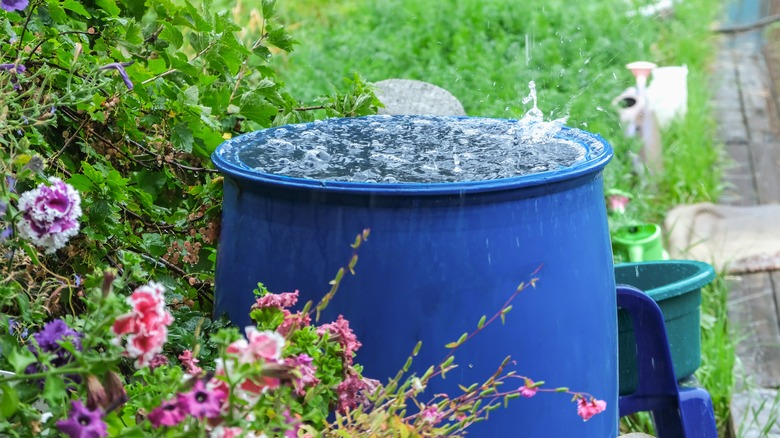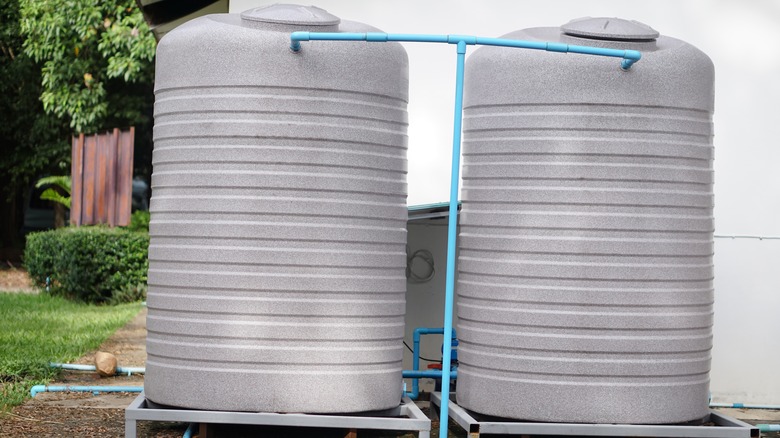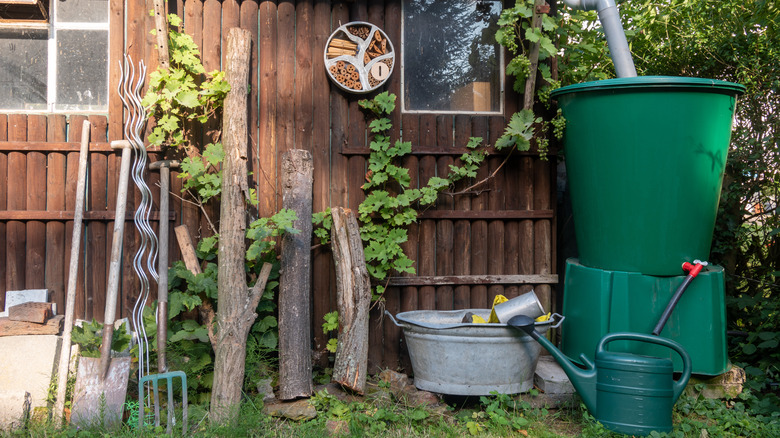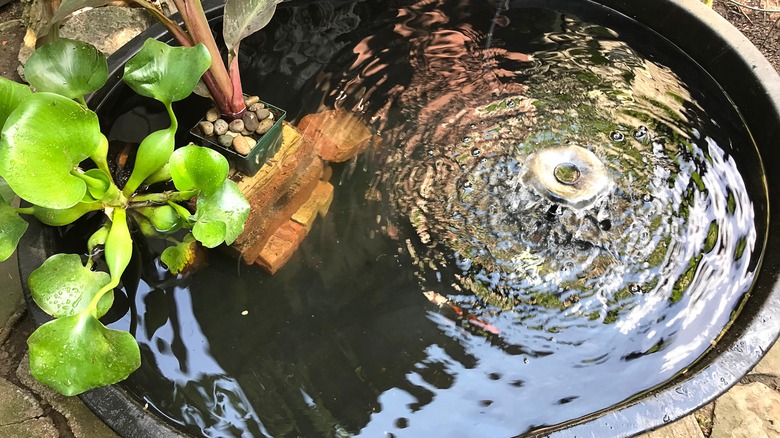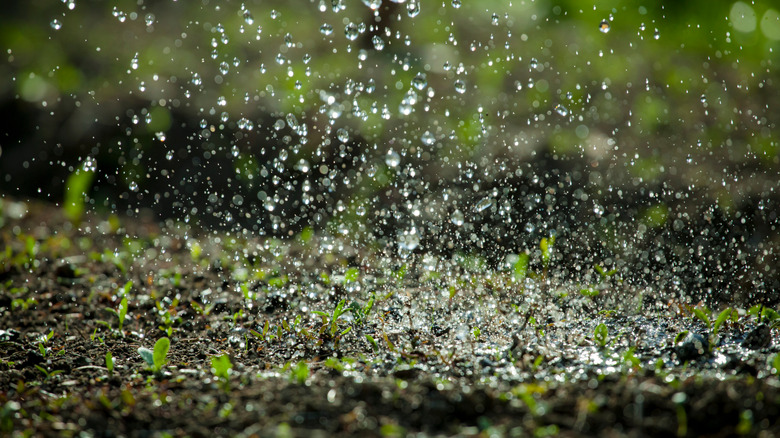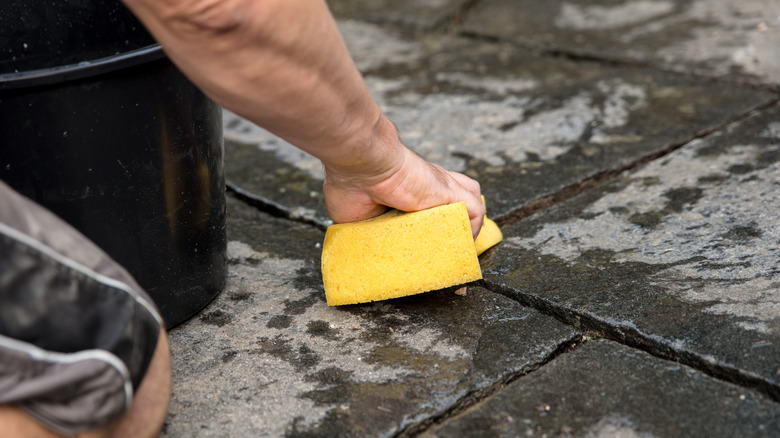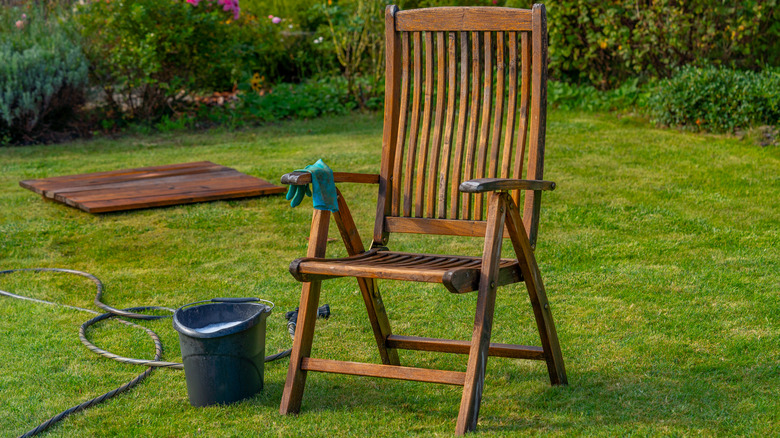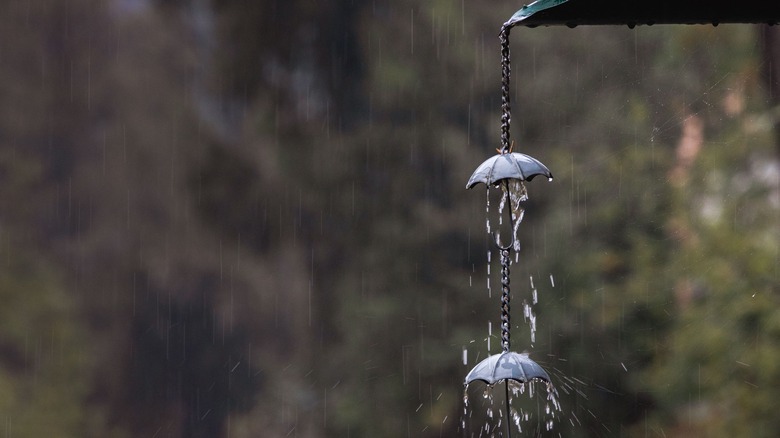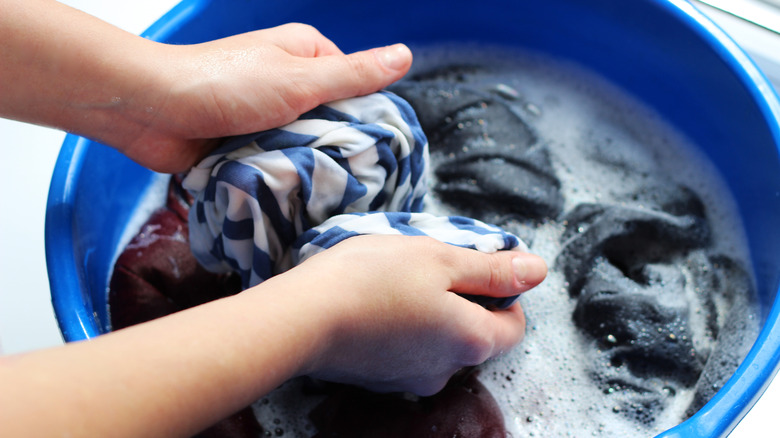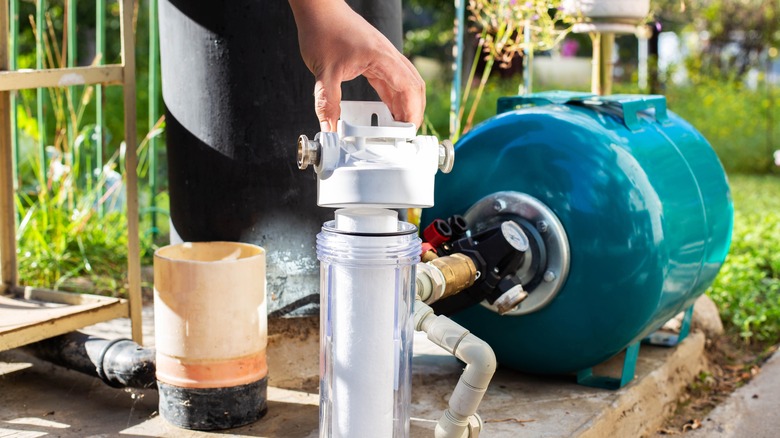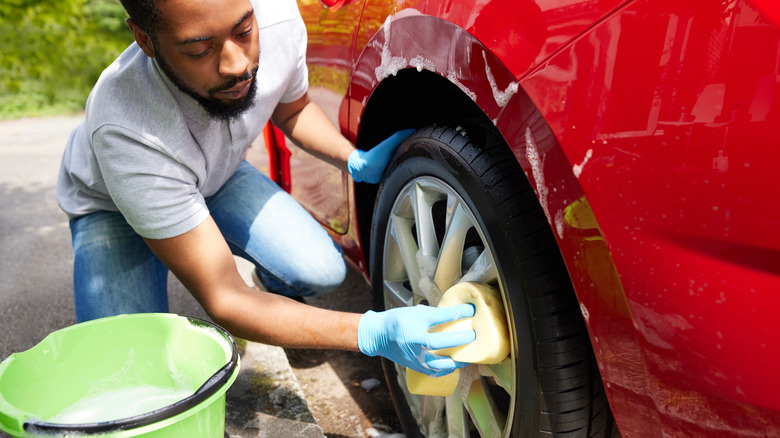10 Clever Ways To Reuse Rainwater Around Your Home And Garden
Fresh rainwater is one of nature's many free gifts to us, and there are so many ways we can benefit from collecting it. It can be used to nourish our plants, wash our outdoor furniture, and be a backup source of water in the event of an emergency. It also cuts down the water bill because it reduces reliance on the standard water supply. Overall, reusing rainwater is good for the environment, and it's good for us.
To key into this, you need to find the best way to gather rainwater in your home. It can be as simple as putting out a drum to collect the rain that falls off your roof, but you can also have a more organized water collection system like a water butt. Before you start collecting rainwater, note that you need to first check if your state or local government has restrictions on this. Depending on where you are, you might need a permit for the type of system you want to use or have a cap on the amount of water you can collect.
1. Gather it for a 'rainy day'
One way to reuse rainwater in your home is to simply gather it in a barrel or two and keep it for emergencies. If something happens and the water shuts off or suddenly becomes contaminated and unsafe for use, stored rainwater can come in handy to wash something or flush the toilet. It can also save the day in a fire emergency. To use rainwater for more sensitive purposes like drinking, it's necessary to purify it first and you can do so with one of the many types of DIY home water filtration systems out there.
2. Water your plants
You can also use rainwater to take care of your indoor and outdoor plants. Rainwater is beneficial for watering your grass because it is completely natural and contains chemicals and nutrients that are necessary for plant growth. It also doesn't contain any of the toxic chemicals found in the water coming from the tap. With your rainwater barrel, you just need to connect a hose or pour some into watering cans. If you're practicing rainwater harvesting, make sure the ground soil is healthy and loose so it can absorb the water properly.
3. Make a pond in the backyard
Another way to reuse rainwater in your garden or backyard is to make a natural pond. A rainwater pond doesn't need a lot of work to maintain, won't require any pumps or filters, and won't have any of the chemicals from tap water. It supports biodiversity and might attract some good insects or frogs to your home. You can even add things like rocks and floating plants to enhance its appearance. Keep in mind that, unless you're filling it from storage barrels, this feature is dependent on rainfall so it won't be available all year-round.
4. Make a rain garden
You can create a rain garden, which is a type of garden that's dug a bit deeper than level ground so it can collect the runoff of rainwater and nourish plants with the nutrients it contains. Rain gardens are best done with native plants so they are really low-maintenance and, similar to rainwater ponds, they can attract wildlife to your yard. A good thing about this is that the water won't be a stagnant puddle of water and it will actually dry out fast so you don't have to worry about creating a swamp or attracting mosquitoes.
5. Clean the outside windows, floors and other outdoor surfaces
Gathered rainwater can also come in handy when you need to wash your windows, floors, and patio. This helps you to cut down on the amount of normal water you consume and save some money. The calcium and chlorine in tap water can also cause streaks on windows and floors, so rainwater will make your job easier and leave these surfaces looking shiny and spotless. For patios specifically, this approach will be better than using a pressure washer because going over the surface with a hand brush and bucket of water will be much gentler and prevent damage.
6. Wash your outdoor furniture
Similar to your outdoor surfaces, your outdoor furniture can be cleaned with any type of water so why not use rainwater? It's free and won't rack up your utility bills when you have to tackle chairs and tables that need a lot of scrubbing. Plastic, wicker, wood, and metal outdoor furniture can all be cleaned with water. Cushions can also be spot-cleaned to remove stains. Just know the best way to handle the material you have because some fabrics require just a damp cloth, while others can handle more moisture while cleaning.
7. Make a rain chain
A rain chain is a piece of metal chains that slowly guides rainwater from a roof gutter to the ground or to a basin. Rain chains can help your garden by providing moisture to your plants while preventing overwatering, and they can make the space look nicer. They come in different styles and shapes and are easy to set up, so this is a great DIY project. Rain chains are placed at the edges of your roof, where rain tends to run off, so they are most useful when you have plants on the edge of your building.
8. Wash your clothes
The majority of homes in the U.S. have hard water running through the pipes and it's typically what is used in the washing machines. However, hard water weakens the potency of detergent and can stiffen or discolor your items. Consider doing your laundry with rainwater because it not only saves you money on water bills but its freshness and softness will be better for your clothes. You can accomplish this by washing your clothes by hand in a basin of rainwater or connecting your washing machine to the storage barrel with a hose.
9. Use it in the shower
Another clever way to reuse rainwater in your home is for bathing. All you need to do is to clean and disinfect it and then put a filter in place for when it has to travel from the storage container to your shower. Some common methods for treating rainwater are sand filtration and UV sterilization. When the water is free from germs, impurities, and debris it will be good to go. We recommend regularly emptying and replenishing the barrel and testing the water from time to time to make sure it's still safe.
10. Wash your car and other outside equipment
This is a great way to reduce your use of normal water. Gathered rainwater can be used to wash your car, clean your lawnmower, and clean garden tools and other equipment. A bucket of water, soap, and a brush or cloth can be all you need to wash these items , so it won't cost a lot, and doing it by hand allows you to be more careful and attentive. You can use untreated rainwater for this but filtering it first can help avoid spots or streaks when you're done cleaning.
